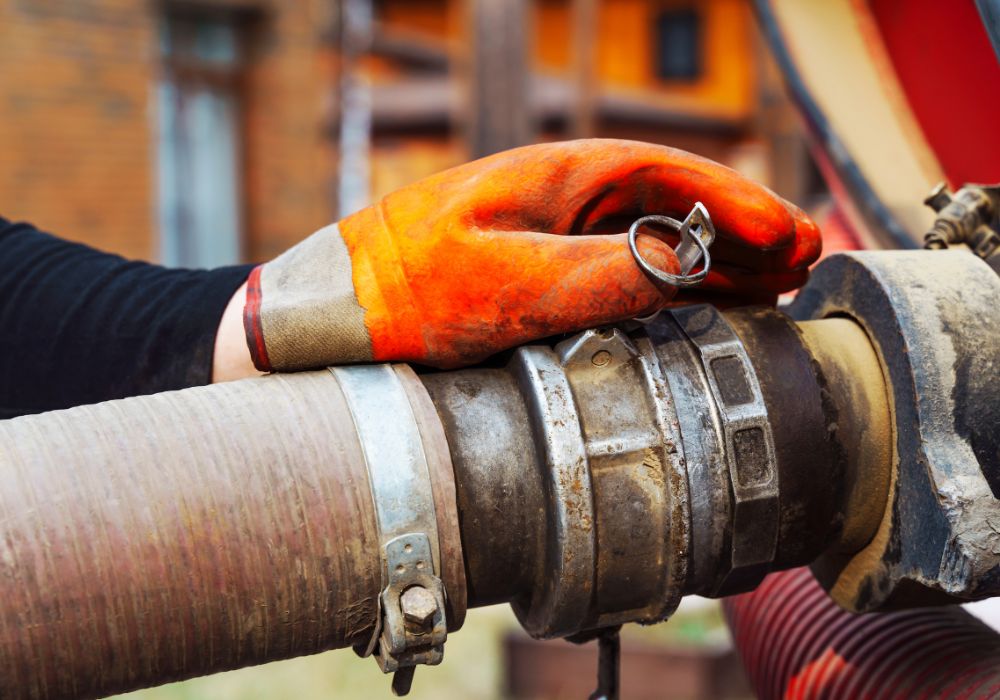If you live in a rural area or own a property that is not connected to a public sewer system, chances are you have a septic tank. Septic tanks are underground containers that collect and treat wastewater from your home. While septic systems are generally low-maintenance, it’s important to understand how they work and how to take care of them. In this blog, we’ll provide a comprehensive guide to your septic system.
How Does a Septic System Work?
A septic system is a self-contained system that treats wastewater from your home. When you flush the toilet, run the dishwasher, or take a shower, the wastewater flows into the septic tank. The solids sink to the bottom of the tank, while the liquid wastewater flows out of the tank and into a drainage field.
In the drainage field, the wastewater is filtered through the soil and treated by natural bacteria, which break down and decompose any remaining organic matter. This process ensures that the water is safe to enter the groundwater supply.
Components of a Septic System
A septic system consists of several components, including the septic tank, drainage field, and pipes. Here’s a breakdown of each component:
Septic Tank: This is the main component of the septic system. It’s a large, underground container that collects and treats wastewater from your home. The solids settle to the bottom of the tank, while the liquid wastewater flows out of the tank and into the drainage field.
Drainage Field: This is the area of land where the wastewater is filtered through the soil and treated by natural bacteria. The drainage field typically consists of a network of perforated pipes buried in trenches.
Pipes: The pipes connect the septic tank to the drainage field and transport wastewater from your home to the tank.
Maintaining Your Septic System
Proper maintenance is essential to keep your septic system working properly. Here are some tips to keep your septic system in good condition:
Pump Your Tank Regularly
Over time, the solids in the septic tank can build up and clog the system. To prevent this, it’s important to have your septic tank pumped regularly. The frequency of pumping depends on the size of your tank and the number of people in your household. As a general rule of thumb, a tank should be pumped every 3-5 years.
Be Careful What You Flush
Flushing non-degradable items down the toilet can clog your septic system. Avoid flushing items like wipes, feminine hygiene products, and paper towels.
Use Water Wisely
Excessive water use can overload your septic system and cause it to fail. Be mindful of your water usage and avoid running multiple water-using appliances at the same time.
Keep Your Drainage Field Clear
Don’t park vehicles or place heavy objects on your drainage field, as this can compress the soil and prevent the wastewater from filtering properly.
Get Regular Inspections
Regular inspections can catch potential problems before they become major issues. A professional plumber can perform a septic inspection and ensure that your system is functioning properly.
Signs of Septic System Problems
If your septic system is not working properly, you may notice some signs of trouble. Here are some signs that your septic system may be failing:
Slow Drains
If your drains are slow to empty, it may be a sign that your septic system is backing up.
Foul Odors
A strong odor coming from your drains or your septic tank may be a sign of a problem.
Standing Water
If you notice standing water in your yard near the septic system, it may indicate that the drainage field is not functioning properly.
Lush Vegetation
While a healthy lawn is a good thing, if you notice an area of your yard where the grass is greener and lusher than the rest, it may be a sign of a leak in the septic system.
Sewage Backup
A sewage backup is a serious problem and can cause significant damage to your home. If you notice sewage coming up through your drains, it’s important to call a professional plumber immediately.
If you have questions or concerns about your septic system, call professionals. Henry Plumbing can quickly help you diagnose any issues with your septic, or we can simply perform an inspection to give you peace of mind around your plumbing. Give us a call today!


